#CreativeImpact Climate Journeys with Morgan Curtis

Photos and Q&A by Finn Harries
I was invited by Project 1324 to document a person I admired both for their creativity and their social impact.
Morgan Curtis has inspired me ever since I heard about her ‘climate journey’. In 2015, Morgan spent six months cycling from Maine to Paris in order to attend the U.N Climate Conference as a youth delegate for an organization called Sustain U.S.
She works tirelessly and creatively to fight for those that are most affected by our changing climate. She is a voice and a glimmer of hope to those under-represented communities who are often the least responsible for the environmental damage that they find around them.
Here’s a couple of the questions I asked her when we met in Albany earlier this month:
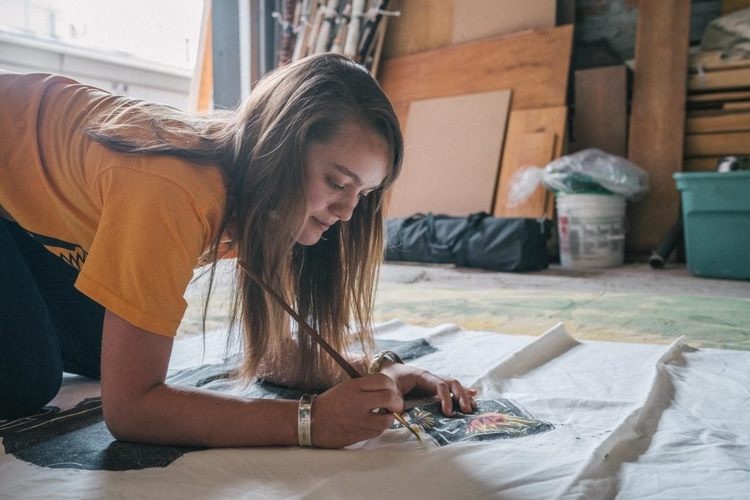
http://blogs.adobe.com/conversations/files/2016/05/3.jpg
How did you first get involved with climate activism?
I felt grief for our world from a young age, and never knew why. The emotions were red hot: anger, disappointment, frustration. The world was not as I had been taught it was. My window out to it from the bulwarks of privilege I grew up behind was through story. I shed tears for the Amazon, for the Cree of Alberta, for the children of the Niger Delta. I devoured words of writers looking to shake their readers. I shook. I translated my emotions to actions, charged similarly. I hid lightbulbs in my home. I raged against waste. I stood guard over the thermostat. I began to see the interconnection between my own actions and pain and suffering a world away.
While I initially shouldered the weight of this connection as a behavioral crisis, I soon felt that my recycling was not going far enough. At the age of twelve I began to write to politicians, demanding change: in climate policy, agricultural policy, energy policy. When the responses were non-committal, I decided to study engineering. Perhaps I could physically recreate the technological systems behind the climate crisis. Just as I staled in my outdated and reductionist studies, the fossil fuel divestment movement took the country by storm. Here, finally, I felt a response to the climate crisis that worked at the depth required: our cultural mythology and understanding of the way things are. Divestment works to change the story: from the fossil fuel industry as a revered backbone of our lives to a moral pariah writing death notes for millions. I learnt more than I ever could have imagined – about building power, storytelling and shaping community. I began to feel part of the intersectional, vibrant social movement that we need to enact change at every level of our world: behavioral, political, technological, cultural, spiritual.
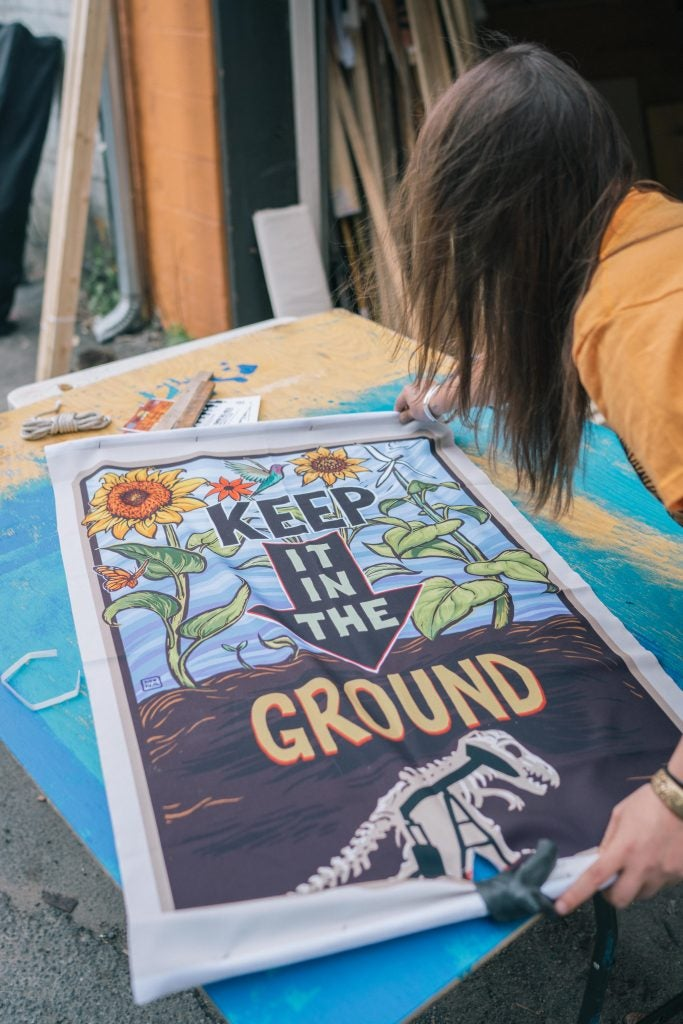
http://blogs.adobe.com/conversations/files/2016/05/7.jpg
What tools do you find most powerful to get your message across?
When we face a challenge that runs as deep in our cultural and political systems as climate change, we need tools that operate at a similar depth. I see the work that needs to be done at this moment in history as renewing our cultural story, (re)creating a new and ancient way of relating with one another and the Earth. The only tool I’ve found so far that works at this level is storytelling. Whether through writing, theatre, poetry, journalism, unapologetic living, long conversation or education, I see story as the thread that holds together the fabric of my work in this movement.
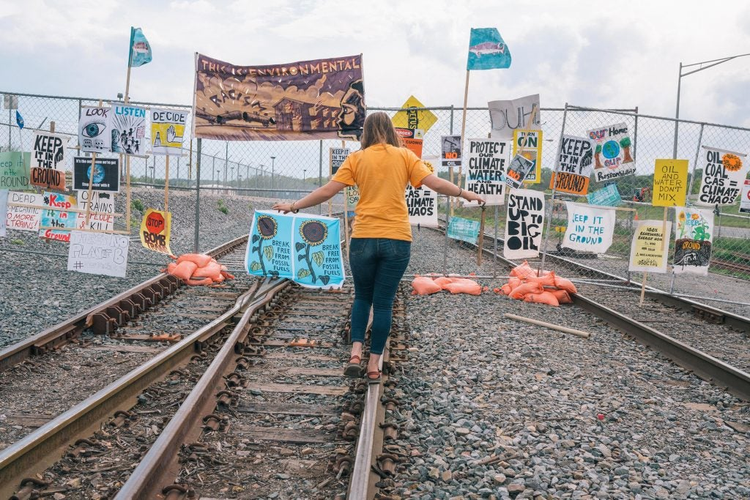
http://blogs.adobe.com/conversations/files/2016/05/MorganCurtis.jpg
You cycled from Vermont to Paris as part of a creative online project called ‘Climate Journey’. How was that experience?
I first dreamed of Climate Journey while sitting by my woodstove in Maine, where I was living at a small farm school, teaching environmental issues. With COP21, the long-awaited 2015 UN Climate Conference imminent, I felt called to put my whole self to the service of this movement moment. Somehow, all in around fifteen minutes, that calling birthed the idea of travelling slowly by bicycle to Paris for the conference, gathering stories over six months, in an effort to shift the narrative around these international negotiations: it’s not some piece of paper from the UN that will build the world we want, but we, the people. I found a teammate in collage artist Garrett Blad, and we embarked together on a 5000km bicycle journey through eleven countries, meeting hundreds of climate activists working from the grassroots for fossil fuel resistance and climate solutions. Almost everywhere we travelled we found people devoting their lives to this great moment of transition, feeling viscerally the power and interconnectedness of this unprecedented movement for social and environmental justice.

What kind of message do you hope to promote through your work?
My favorite enduring lesson from Climate Journey is one we heard time and time again. When we asked people “Why is it that you work for climate justice?” we often received a smiling affirmation: that, for so many, getting involved with the building of a better world was the best decision they have ever made. We heard often that after years of sleepwalking, meaninglessness, depression, stepping into activism empowered people to feel like the tellers of their own life story – that they felt a renewed gratitude for life and sense of purpose to their journey on this planet.
As such, the message I hope to promote with my work is that climate activism can be a route to personal, interpersonal and societal transformation and healing. I hope that by sharing the stories of our movement I am offering up a gift for others: join us. You’ll never regret it.
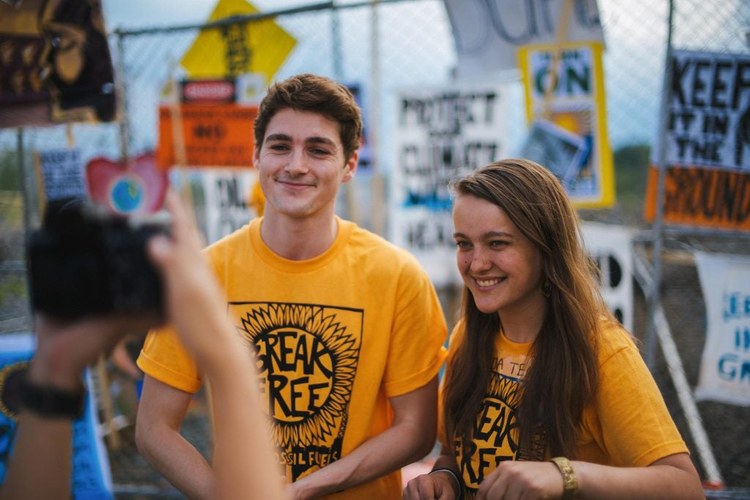
http://blogs.adobe.com/conversations/files/2016/05/o.jpg
What social responsibilities do you think our generation has?
Our generation is living in a moment unprecedented in human history. We occupy a unique fold in time, where decisions we make about how we live our lives today are impacting future generations millennia from now. In the midst of this catastrophic opportunity each of us is presented with a choice: how do we choose to respond? Do we keep our heads down and keep on keeping on, or do we stand up and be counted as part of the greatest transition human civilization has ever seen? I believe that when we step up to what science and justice demands of us, and give our whole selves to charting a safe, just and sustainable future for our communities, our families, our world, we open the door to finding our true gifts. We find peace when we reveal those passions and put them to the service of the world.
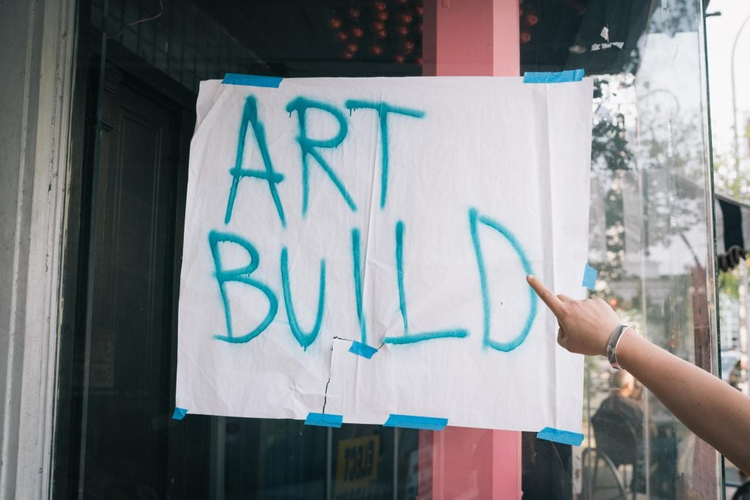
http://blogs.adobe.com/conversations/files/2016/05/2.jpg
What advice would you give to a young creative looking to produce meaningful work?
I believe deeply in place-based activism, art and community-building. My first piece of advice would be to throw yourself into your place and listen. Whether you live in a city, a small town, a university, a wilderness, open your heart to the issues facing your community. Listen to the struggles of those that are different to you, of those that are similar to you, and allow yourself to feel the very real pain of our compounding systems of social, economic and environmental injustice. Only by allowing ourselves to truly feel the harrowing weight of these times do we enact the survival response that is needed to create the powerful and meaningful work needed to shift our world. Whatever your gift – be it painting, poetry, dance, listening, speaking, performing – ask yourself: how can you put it to the service of a change in story?
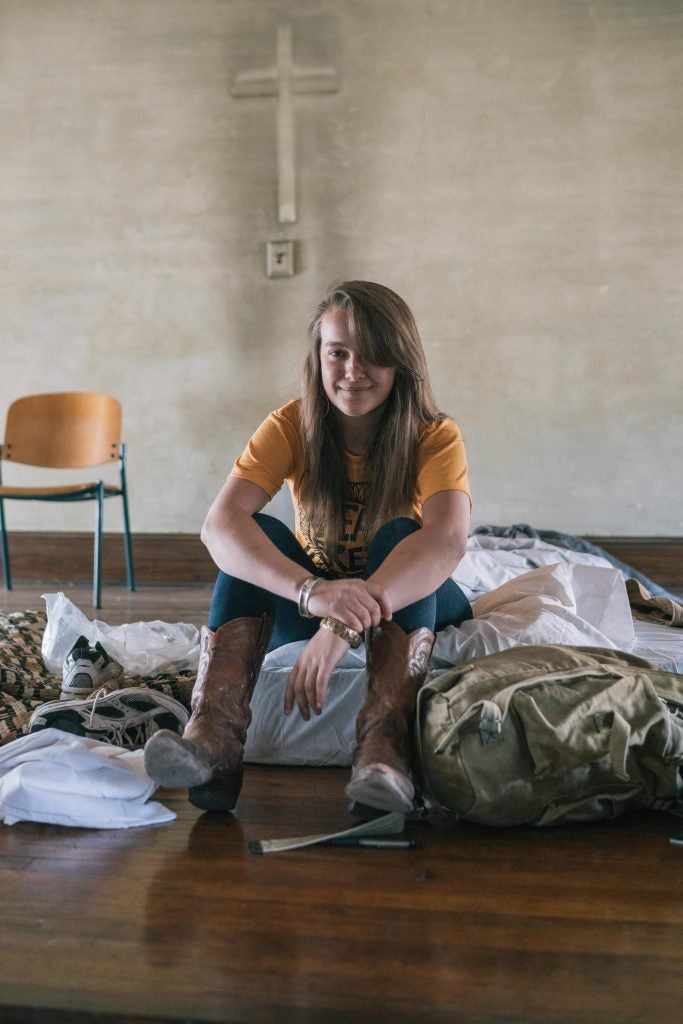
http://blogs.adobe.com/conversations/files/2016/05/n.jpg
What’s next for you?
I am writing to you right now from a two-week retreat with the US youth delegation from COP21, last year’s UN Climate Conference. We all worked together in the most high-pressure, difficult and transformative few weeks of my life, and we applied for funding earlier this year to bring us back together and dive into the deep community-building and storytelling work needed to both heal and look forward for our work in the climate justice movement. I’m also going to be leading this year’s SustainUS youth delegation to COP22, the 2016 UN Climate Conference, and recently launched our inaugural Creative Challenge as a way of selecting the new group of young change-makers.
As I dream about the work of this year’s delegation, I am immersing myself in trainings and retreats that focus on the nexus of sustainable community and political mobilization. It is this intersection that I feel really called to explore, and am working as a storyteller, learner and educator. I’m also part of the inaugural cohort of the Spiritual Ecology Fellowship, and am beginning research for a book on whether the climate justice movement is serving as a spiritual awakening for millennials, and whether it has to to succeed. If that resonates with you, please do get in touch, I would love to connect!
Finn Harries is an Architecture student at Parsons School of Design. Follow him on Instagram at @FinnHarries.